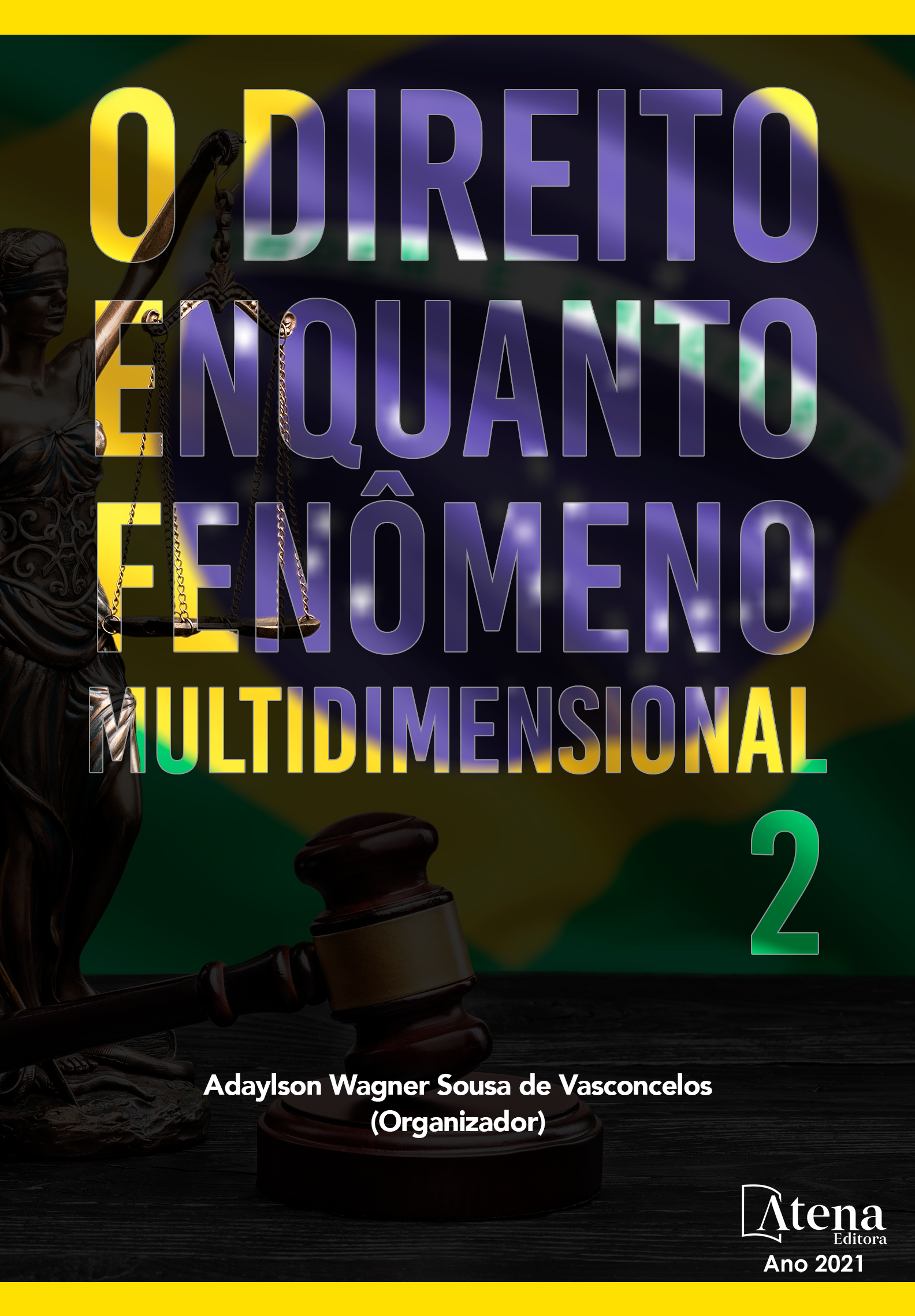
A APLICAÇÃO DA TEORIA DA COCULPABILIDADE DO ESTADO INFRATOR EM SENTENÇAS PENAIS ABSOLUTÓRIAS
A Constituição Federal de 1988 assegura um arcabouço concreto de garantias fundamentais, como o direito à liberdade, vida, igualdade, saúde, educação, informação e a paz. A teoria da coculpabilidade do Estado Infrator tem como nascedouro os direitos acima alinhados, demonstrando que diante da prática de um crime, o Estado carrega uma parcela da culpa imputada ao acusado, vez que não fora exitoso em proporcionar à todos os direitos consagrados na Constituição, contexto este capaz de gerar um descompasso social responsável por impulsionar uma pessoa a delinquir. O objetivo principal desta pesquisa consiste em demonstrar a possibilidade de aplicação da aludida teoria em sentenças penais absolutórias. Os objetivos secundários dedicam-se em estabelecer o conceito e a evolução histórica da teoria em estudo, para a conexão desta à causa supra legal de exclusão de culpabilidade, inexigibilidade de conduta diversa e por fim, para a análise de uma sentença penal absolutória prolatada pelo Tribunal Regional Federal da 1ª Região, que adotou tal teoria como um vetor. A metodologia consiste em pesquisa bibliográfica de caráter qualitativo, que fornecerá o suporte teórico e prático necessário para realizar a análise em questão. A doutrina utilizada fora ZAFFARONI (2013), FOUCAULT (2007) e MARAT (2008), dentre outros. Conclui-se que tal teoria busca tornar o processo penal mais equânime, demonstrando que o judiciário, diante de uma processo de natureza penal, deve atentar para os fatores econômicos e sociais característicos da vivência do réu.
A APLICAÇÃO DA TEORIA DA COCULPABILIDADE DO ESTADO INFRATOR EM SENTENÇAS PENAIS ABSOLUTÓRIAS
-
DOI: 10.22533/at.ed.6102119083
-
Palavras-chave: Culpabilidade, Estado, Desigualdade, Sentença.
-
Keywords: Culpability. State. Inequality. Sentence.
-
Abstract:
The 1988 Federal Constitution ensures a concrete framework of fundamental guarantees, such as the right to freedom, life, equality, health, education, information and peace. The Infringing State's theory of co-culpability is based on the rights outlined above, demonstrating that in the face of a crime, the State bears a portion of the blame imputed to the accused, since it was not successful in providing all the rights enshrined in the Constitution this context capable of generating a social mismatch responsible for impelling a person to delinquent. The main objective of this research is to demonstrate the possibility of applying the aforementioned theory in absolute criminal sentences. The secondary objectives are dedicated to establishing the concept and the historical evolution of the theory under study, for its connection to the supreme legal cause of exclusion of guilt, unenforceability of different conduct and, finally, for the analysis of an absolute criminal sentence issued by the Federal Regional Court of the 1st Region, which adopted this theory as a vector. The methodology consists of qualitative bibliographic research, which will provide the theoretical and practical support necessary to carry out the analysis in question. The doctrine used outside ZAFFARONI (2013), FOUCAULT (2007) and MARAT (2008), among others. It is concluded that this theory seeks to make the criminal process more equitable, demonstrating that the judiciary, in face of a criminal process, must pay attention to the economic and social factors characteristic of the defendant's experience.
-
Número de páginas: 12
- FLÁVIA MARIA ROCHA MELO
- JOSÉ FRANCISCO DA SILVA JÚNIOR
- LARAH ROBERTA CAMPOS CANSANÇÃO
- DAYANE REIS BARROS DE ARAÚJO LIMA
- ROMÉZIO ALVES CARVALHO DA SILVA
- FRANCISCO DAVI NASCIMENTO OLIVEIRA


